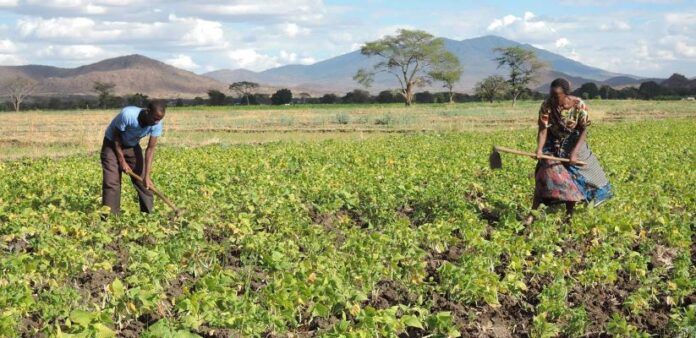The United States through its Agency for International Development, USAID has promised to inject $5 million into Tanzania’s Agricultural Sector in a bid to boost the East African country’s food security by supporting local farmers.
The funds are in addition to the previous $14 million that the US put into the sector in the last nine months.
According to Samantha Power, the country’s USAID Administrator, the $5 million will be used to empower local food growers, among other needed support to enable them invest in farm inputs, proper irrigation systems, agricultural machinery, storage facilities, and offsetting effects of climate change.
“Aware that local farmers are recovering from effects of Covid-19, we want to support them in other pressing areas of concern which include mitigation of challenges posed by climate change among others,” said Power.
About 80 per cent of agricultural production in the country comes from subsistence farmers who relying on manual cultivation and rainfed production, making them highly vulnerable to weather shocks.
Power spoke when she visited horticultural farms in the Ilkiding’a Village of Arumeru District, where she met and held talks with local farmers, especially women growers.
She also had a meeting with aspiring young farmers being incubated under the state-supported ‘Build a Better Tomorrow,’ (BBT) programme.
Despite the myriad of challenges they encounter, including low yields, crop cultivation remains the main economic activity for most small-scale farmers in Tanzania.
According to Eva Petro Mollel, the Secretary of the Association of Arusha Onion Growers (UVIWAVA), today more women have been joining commercial farming activities to improve their income and livelihoods than before.
Jacqueline Mkindi, Tanzania Horticultural Association (TAHA) Group CEO revealed that the organization has been working with USAID to empower local farmers in Tanzania.
“Nowadays, farming is all about markets, and with the assistance of USAID, we are working to secure local and overseas markets for Tanzanian horticultural producers,” she stated.
Extension services
Extension services can play a key role in increasing small-scale farmers’ productivity. Unfortunately, due to the limited number of extension officers, most farmers are not reached in time.
To help bridge this gap, Tanzania has been scaling up the use of the M-Kilimo platform, a mobile based agriculture application that helps farmers’ access extension and advisory services and market related information at the palm of their hands.
The US has also been supporting the country to enable its farming groups acquire the necessary skills and facility to produce enough for food and trade.
Last month alone, United States Government pledged $12 million (TZH 28 billion) to support Tanzania youth. in starting, operating, and financing agricultural businesses on the mainland and in Zanzibar.
“For over six decades, the United States has cherished its partnership with Tanzania,” said Michael A. Battle, U.S. Ambassador to Tanzania.









[…] Source link […]
[…] Credit: Source link […]
Comments are closed.